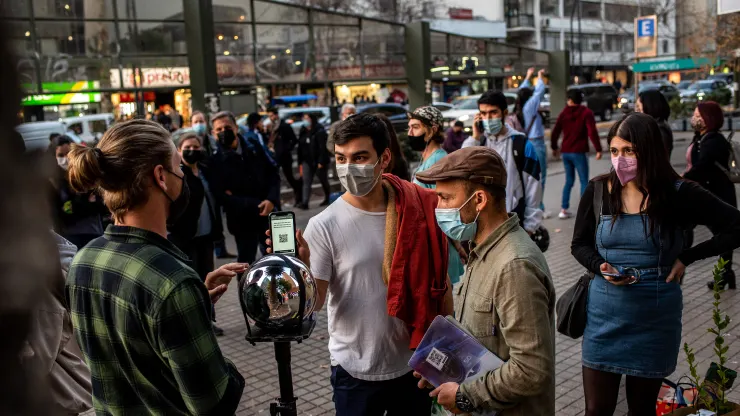Ugandan earns bonus for each person he gets to sign up for Sam

Three actors have committed to reducing the environmental impact of film and television productions, including Stephen Fry, Bella Ramsey, and Ben Whishaw.
Equity, the UK arts union, offers a “Green Rider” that allows contracts to include eco-friendly clauses.
As part of their rules, they avoid private jets and big trailers, as well as bringing their own water bottles and coffee cups.
The strike actor Tom Burke also signed, saying he hoped it would “initiate a change in culture”.
As he sees it, things on set aren’t running as greenly as they should, and the whole industry needs to reevaluate its priorities.
“Some of the topics are status symbols, such as people wanting to travel on private jets, and it’s not just what actors do, but also what the media does,” he said.
“If we want to make a noise about caring, we need to unpick this and be more mature.”
Burke helped launch the scheme at the Edinburgh TV Festival on Tuesday. In my opinion, we can only keep our side of the street clean in life. One of the first films to use the scheme is Sir Mark Rylance’s short film Spirit of Place.
According to him, film production is notorious for its waste and un-ecological practices.
It continued: “Just because we cannot do everything, doesn’t mean we can’t do anything. Let’s clean up our workplace.”
A total of 100 people have signed the plan, including Hayley Atwell, David Harewood, Bill Nighy, Paapa Essiedu, Nabhaan Rizwan, Juliet Stevenson, Dame Harriet Walter, and Adrian Dunbar.
As Ramsey described it, it is “a practical way to improve sustainability in the film and television industry”.
Artists’ riders are lists of requests they make at the location or venue where they work. There is a list of things an actor can agree to when making a film or show on this green rider. Keneth Byarugaba has been working as a runner for Worldcoin in Uganda for the past year. For about $60 worth of cryptocurrency, he needs to get as many people as possible to scan their eyeballs into a big metallic orb.
Runners, who are paid a commission based on how many Ugandans they recruit to sign up, station themselves in shopping malls, universities and on sidewalks to try to convince passersby to exchange their biometric data for a new kind of digital identity called a World ID.
